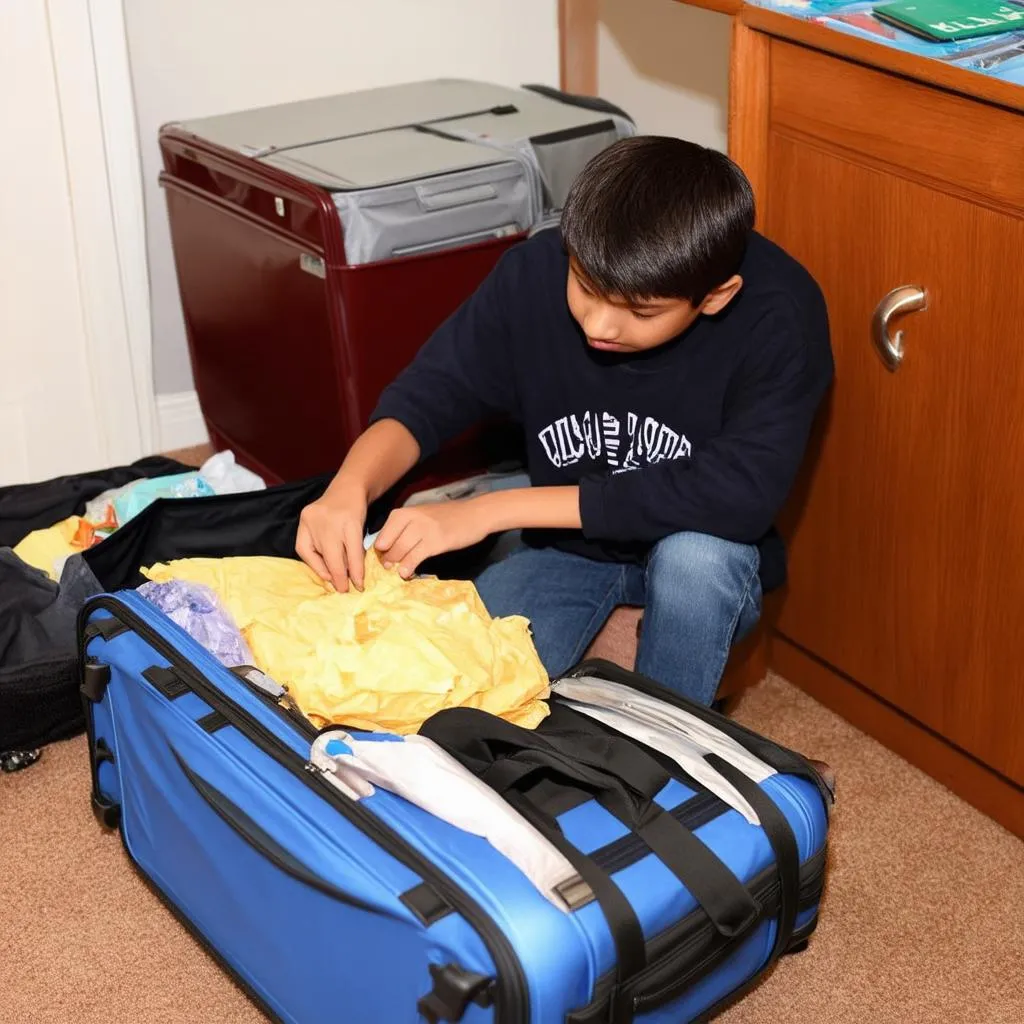Have you ever dreamt of strolling down the Champs-Élysées, marveling at the Eiffel Tower? Or perhaps sipping rich, aromatic coffee amidst the vibrant culture of Hanoi? Traveling outside the US is a dream for many, and for DACA recipients, it can feel particularly complex. But don’t pack away your suitcase just yet! This comprehensive guide will unravel the intricacies of international travel for DACA recipients, empowering you to navigate your options and perhaps, even embark on your own global adventure.
Understanding DACA and Travel Restrictions
DACA, or Deferred Action for Childhood Arrivals, provides temporary protection from deportation and work authorization to eligible individuals who came to the US as children. However, it’s important to understand that DACA does not grant permanent residency or citizenship. This distinction has significant implications for international travel.
Can DACA Recipients Leave the US?
The short answer is: it depends. While DACA itself doesn’t prohibit travel abroad, leaving the US generally requires advance parole, a document authorizing re-entry for humanitarian, educational, or employment purposes.
Advance Parole: Your Key to Re-Entry
Think of advance parole as a special permission slip. Without it, returning to the US after traveling abroad becomes extremely difficult, potentially jeopardizing your DACA status.
Who Needs Advance Parole?
If you’re a DACA recipient planning to travel outside the US, you’ll most likely need advance parole to return.
Exceptions:
There are very limited exceptions to this rule, such as travel to certain US territories. However, it’s crucial to consult with an experienced immigration attorney to determine if your situation qualifies for any exceptions.
Navigating the Advance Parole Process
Applying for advance parole involves several steps:
Eligibility Check: Ensure you meet the specific eligibility criteria outlined by the United States Citizenship and Immigration Services (USCIS).
Form Filing: Complete and submit Form I-131, Application for Travel Document, along with supporting documentation and the required fee.
Biometrics Appointment: Attend a biometrics appointment, typically at a USCIS Application Support Center, for fingerprinting and photo capture.
Decision and Travel Document: If your application is approved, USCIS will issue you an advance parole travel document.
Important Note: The processing time for advance parole applications can vary, so it’s essential to apply well in advance of your planned travel dates.
Factors to Consider Before Traveling
Before packing your bags, carefully consider the potential risks and benefits of international travel as a DACA recipient.
Potential Challenges:
Re-Entry Issues: Even with advance parole, there’s no absolute guarantee of re-entry into the US.
Emergency Situations: Unforeseen circumstances abroad, such as political unrest or natural disasters, could complicate your return.
Legal Assistance: Accessing legal help while abroad can be challenging and expensive.
Tips for a Smoother Journey:
Consult an Attorney: Seek guidance from an experienced immigration attorney specializing in DACA and international travel.
Thorough Documentation: Carry all essential documents, including your advance parole document, DACA approval notice, and government-issued identification.
Stay Informed: Keep abreast of any changes in immigration policies or travel advisories issued by the US Department of State.
Planning Your Trip: Destinations and Considerations
While the decision to travel abroad as a DACA recipient requires careful thought, it’s important to remember that travel is still possible! Here are some aspects to consider when planning your trip:
Destination Research:
Visa Requirements: Some countries may require a visa even for short visits. Research the specific visa requirements for your intended destination well in advance.
DACA Recognition: Investigate whether your destination country recognizes DACA for entry or any specific travel restrictions related to DACA status.
Local Laws and Customs: Familiarize yourself with the local laws and customs of your destination to ensure a respectful and enjoyable experience.
Travel Logistics:
Travel Insurance: Secure comprehensive travel insurance that covers medical emergencies, trip cancellations, and other unforeseen events.
Communication: Ensure you have a reliable way to communicate with family or legal contacts back home while abroad.
Financial Planning: Budget accordingly for travel expenses, including flights, accommodation, food, activities, and any potential emergency funds.
Can DACA Recipients Travel to Specific Destinations?
Many DACA recipients wonder if they can travel to specific destinations, such as:
Can DACA Recipients Travel to Canada?
Canada has its own set of entry requirements, and while it may offer travel options for DACA recipients, it’s crucial to consult with an immigration lawyer knowledgeable about both US and Canadian immigration law.
Can DACA Recipients Travel to Mexico?
Traveling to Mexico, even for DACA recipients, requires careful consideration and planning. It’s vital to understand Mexican entry requirements and any potential implications for your DACA status upon return to the US.
 DACA recipient looking at Mexico City skyline
DACA recipient looking at Mexico City skyline
Embracing the Power of Travel
Despite the complexities, international travel can be a transformative experience for DACA recipients.
Personal Growth and Enrichment:
Traveling to new places exposes you to diverse cultures, broadens your perspectives, and fosters personal growth and understanding.
Educational Opportunities:
International travel can enhance your education, whether it’s through language immersion, cultural exchange programs, or simply experiencing history and art firsthand.
Strengthening Family Ties:
For some DACA recipients, traveling abroad offers a chance to reconnect with family members in their home countries, strengthening familial bonds.
Feng Shui and Travel: Inviting Positive Energy
In the realm of Feng Shui, travel is considered a powerful way to shift energy and invite new opportunities into your life.
Enhancing Travel Luck:
Packing Intentionally: Pack items that hold personal significance or represent your travel aspirations.
Direction Matters: According to Feng Shui principles, facing east while planning your trip is believed to attract auspicious energy for travel.
Souvenir Selection: Choose souvenirs that symbolize positive energy and memories of your journey.
 student packing suitcase for a trip abroad
student packing suitcase for a trip abroad
Conclusion
Navigating international travel as a DACA recipient can feel daunting, but it’s not impossible. Remember, knowledge is power. By understanding the intricacies of advance parole, researching your destination thoroughly, and seeking guidance from experienced immigration professionals, you can turn your travel dreams into a reality.
For more information and resources on DACA and travel, visit travelcar.edu.vn.
Do you have any questions or experiences to share about traveling as a DACA recipient? We’d love to hear from you in the comments below!